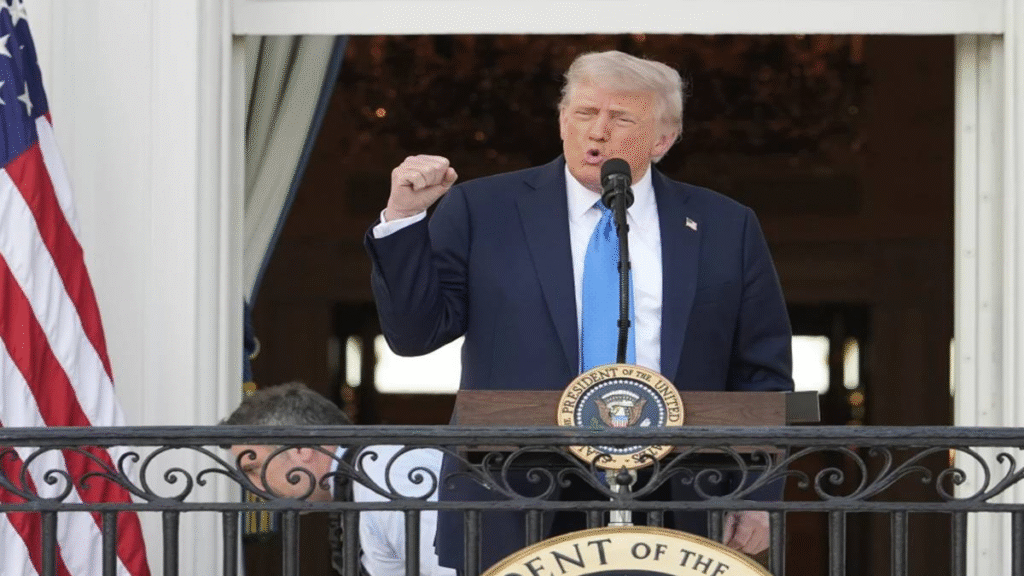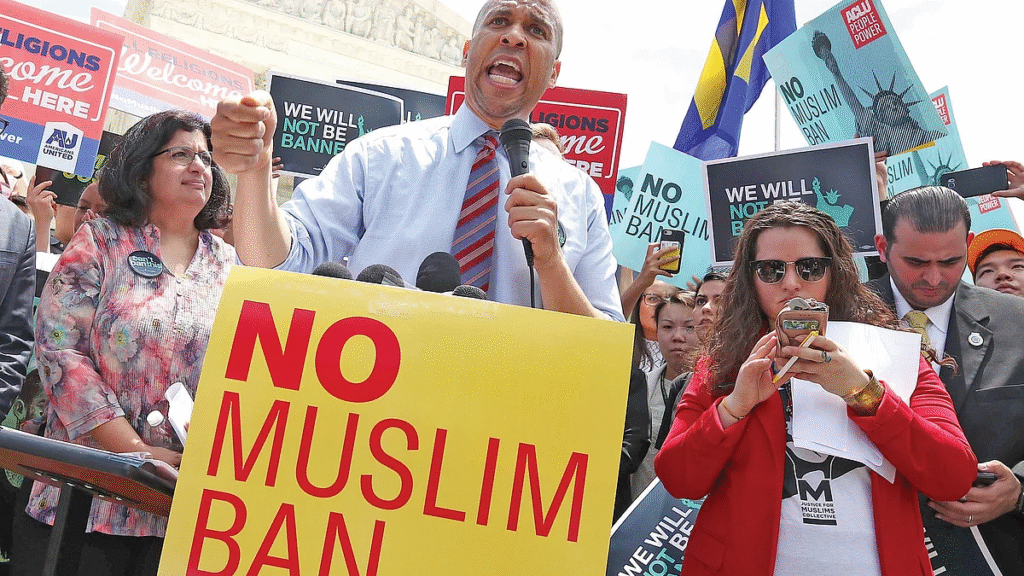
Introduction:
Former US President Donald Trump has announced plans to reinstate and expand his controversial travel ban if re-elected in 2024, targeting majority-Muslim nations. This revival of the “Muslim ban” policy – previously blocked by courts and criticized globally – sparks fresh legal, diplomatic, and humanitarian concerns, particularly impacting students and families with ties to affected countries. (68 words)
The Original Ban & Its Controversial Legacy
Trump’s 2017 executive order barred entry from seven Muslim-majority nations (Iran, Libya, Somalia, Syria, Yemen, Iraq, Sudan), citing terrorism risks. The policy faced immediate protests and legal challenges, with critics labeling it religious discrimination. The Supreme Court upheld a modified version in 2018 (Trump v. Hawaii), though exemptions existed for visa holders and dual nationals.
Key Changes in the Proposed 2025 Policy
Per Trump’s campaign statement (June 2024):
- Expanded Scope: Adds “additional countries of concern,” unnamed but speculated to include Gaza, Afghanistan, and Nigeria.
- Ideological Screening: Mandates “extreme vetting” for immigrants opposing “American values,” including “communists and jihadists.”
- Halting Refugee Resettlement: Pauses programs from “terror-prone regions.”
Legal Challenges & Constitutional Concerns

Legal experts anticipate swift lawsuits if implemented:
“This remains blatant religious discrimination disguised as security policy,” said ACLU attorney Omar Jadwat (Reuters).
The original ban’s narrow 5-4 Supreme Court survival relied on presidential authority over immigration, but new additions could weaken its legal footing.
Impact on Families, Students & Diplomacy
- Diaspora Crisis: Over 60,000 visa applications were denied under the first ban (Cato Institute data), separating families.
- Indian Students/Professionals: While India isn’t targeted, dual nationals or those transiting through listed nations face delays.
- Diplomatic Strains: Allies like Iraq condemned the original ban; renewed tensions could affect counter-terror cooperation.
Political Reactions & Campaign Implications

- Biden Camp: Called it “xenophobic fearmongering” diverting from domestic issues.
- GOP Base: Praised it as “strong border security,” aligning with Trump’s anti-immigration rhetoric.
- Global Response: UNHRC warned of “violating international human rights norms” (UN Statement, June 2024).
What’s Next: Legal Battles & Election Impact
The proposal’s fate hinges on the November 2024 election outcome. If enacted:
- Immediate lawsuits from civil rights groups.
- Potential retaliatory visa restrictions by affected nations.
- Further strain on U.S. international standing, especially with Muslim-majority partners.
Summary:
Donald Trump’s pledge to revive and broaden his contentious travel ban targets Muslim-majority nations, reigniting debates over religious freedom and national security. While supporters cite border control merits, critics decry it as unconstitutional discrimination. The policy’s implementation – and inevitable legal challenges – now rests on the 2024 election results, with profound implications for global mobility and U.S. foreign relations.
No responses yet